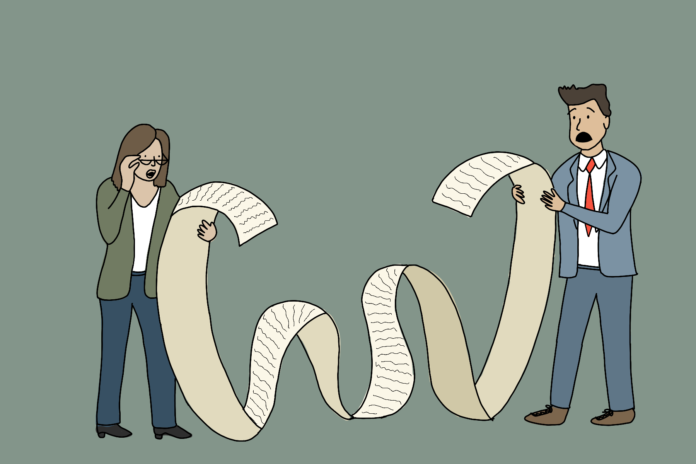By the Editorial Board
If you’re on social media, you have likely heard of Florida’s “Don’t Say Gay” bill. After passing in the state Senate, the legislation blew up online for its controversial nature, even recently sparking a staff town hall meeting from The Walt Disney Co. Critics of the measure have given it the catchy title “Don’t Say Gay” bill, but is that really a fitting name?
For starters, the real title of the bill is far less flashy: “Florida House Bill 1557: Parental Rights in Education.” Reading through the legislation, you will find a conservative-leaning document outlining just that — parents’ rights. So what is all the fuss about?
The main points of controversy come in two places, with the first “… prohibiting classroom discussion about sexual orientation or gender identity in certain grade levels or in a specified manner.”
And second, the grade levels in question are also clarified in the legislation: “Classroom instruction by school personnel or third parties on sexual orientation or gender identity may not occur in kindergarten through grade 3 or in a manner that is not age-appropriate or developmentally appropriate for students in accordance with state standards.”
This essentially means teachers cannot bring topics of sexual orientation, gender identity and/or discussion deemed not “age-appropriate” into the classroom or into the curriculum from kindergarten until third grade. Now, under the new law, you most likely can’t “say gay” in these classroom settings, but that also means you can’t teach opposing worldviews either, such as “homosexuality is a sin.”
The title “Don’t Say Gay” is misleading. The bill isn’t telling you to support, or not support, the LGBTQ+ community. The whole focus of the legislation is to leave political agendas out of the classroom and in the hands of the students’ parents.
The bill has also come under fire because it would prevent schools from withholding certain information from parents.
“A school district may not adopt procedures or student support forms that prohibit school district personnel from notifying a parent about his or her student’s mental, emotional, or physical health or well-being, or a change in related services or monitoring, or that encourage or have the effect of encouraging a student to withhold from a parent such information.”
However, this is also addressed later in the legislation, stating the school may withhold certain information if “… a reasonably prudent person would believe that disclosure would result in abuse, abandonment, or neglect, as those terms are defined in s. 39.01.”
You can read the relatively short seven-page bill in its entirety here.
After taking a step back and seeing what the legislation actually says, even these small portions, it should be fair to say the bill is far more focused on parental rights than LGBTQ+ rights. “Don’t Say Gay” is a politically motivated title.
Political opponents of Ron Desantis and the GOP are using the title, which is not surprising, as Republicans would do the same thing if the situation were in their favor. What should be surprising is the media’s use of the phrase.
Any quick search for “Don’t Say Gay” bill, and you can find countless articles from dominant news outlets using the title as if that is the actual name of the bill. That isn’t fair journalism, but it happens all the time from both sides. Whether the terminology is accurate or not, it’s completely irresponsible of news outlets to use a title so obviously politically driven.
The new Florida legislation is just one example of how easy it is to jump behind a cause and scream without even knowing what you are screaming about. All areas of the political spectrum do it. This bill just goes to prove the problem that people can blindly assume so much without even knowing the origins of a phrase in the first place.
Read it before you scream it. How many readers of this article have taken a stance on the bill, whether left or right, without reading even at least portions of it?
Polarization depends on different sides falling in line behind causes without taking the time to completely understand them. That is a foolish and dangerous place to be. Maybe you hate the parental rights bill; maybe you don’t. Whichever side you fall on is fine, as long as you take the time to know why you think the way you do.
In the politically charged environment we live in, far too often do we buy into political parties, politicians and agenda-driven journalism without taking the time to think through the complexities of every problem and situation. Never blindly follow a social icon, a party or an activist group. Think for yourself; it is a good thing not to always be in lock-step with your party.
Take a step back and then a closer look. You don’t need to be informed on every little thing, but be sure when your time comes to take a stand, you can back up what you’re screaming.





